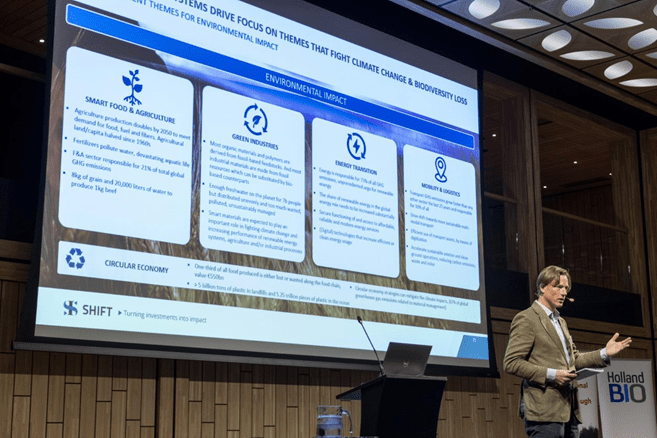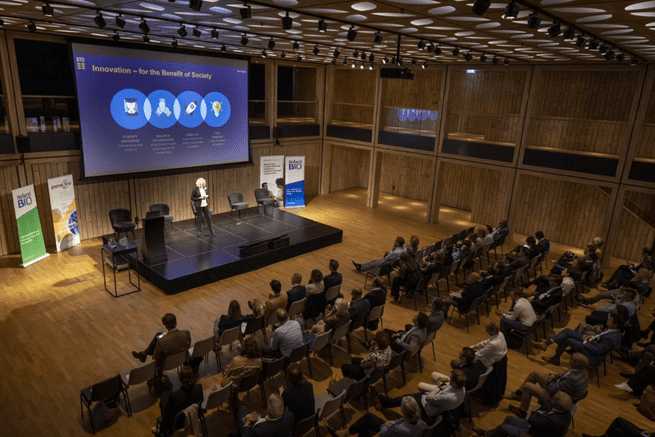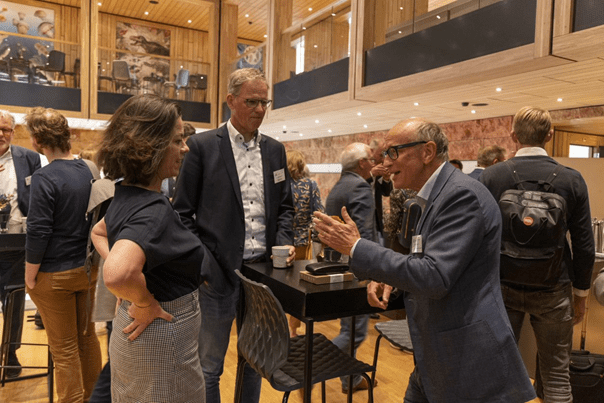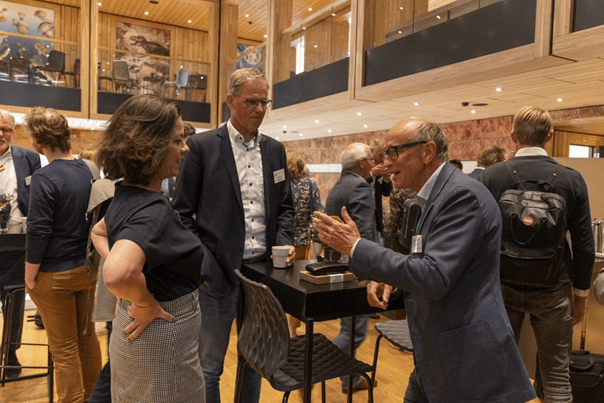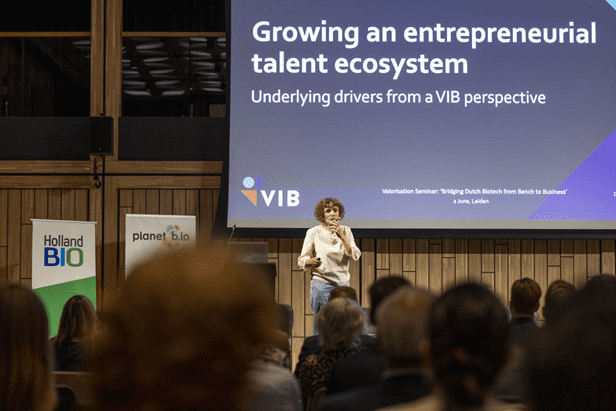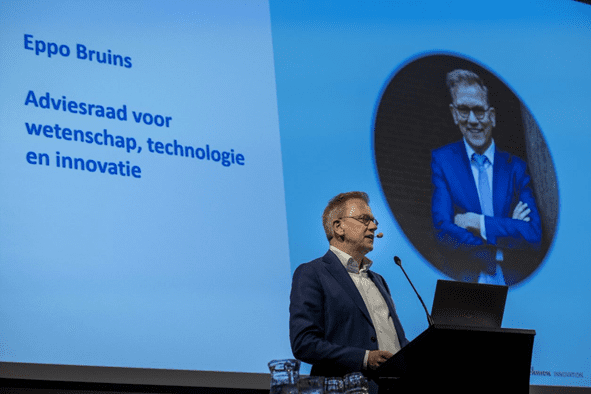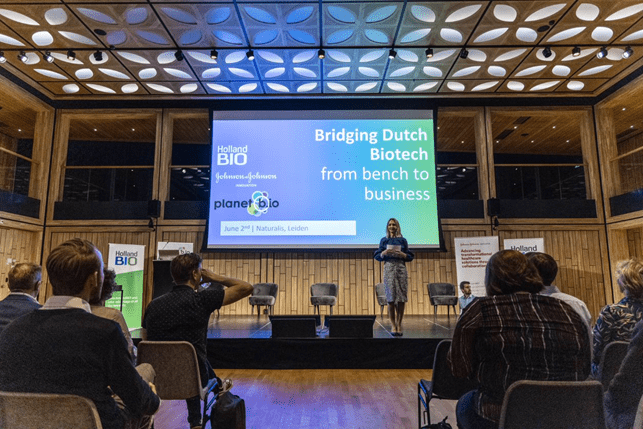Throwback to HollandBIO’s knowledge transfer event
Last week more than 100 stakeholders came together at Naturalis, the national research institute for biodiversity, to discuss how knowledge transfer can be improved in the Netherlands. Together with Johnson & Johnson Innovation and Planet-B.io, HollandBIO invited several speakers that highlighted best practices on improving the way for science from bench to business. The most important message: all stakeholders need to do their part in improving knowledge transfer.
Eppo Bruins, chairman of the AWTI , kicked off the day by providing a theoretical framework based on the AWTI-advice ‘A better start: The key to growth of knowledge-intensive startups’. If we put more emphasis and focus on entrepreneurship, knowledge transfer, financing and support for startups, more startups can accelerate to become successful scale-ups. Eppo highlighted that we should start seeing the Netherlands as one big biotech hub instead of talking about small and competitive regions to fully harness the power of innovation.
The Netherlands is viewed as top of the class life sciences hub, but startups themselves experience a different reality. Daan Luining, CTO and co-founder of Meatable, put some meat on the bones of the theoretical framework and gave a fiery speech about the difficulties for a biotech startup to attract Dutch investors with the right expertise. Foreign investors are ready to take bigger risks and start investing in early stages. This results in the risk that companies leave the Netherlands to scale up abroad. There’s still a lot to improve, and we can get inspiration from our European neighbors.
Carla Snoeck, Manager New Ventures at the Flemish Institute for Biotechnology (VIB) showed how Flanders stimulates academic entrepreneurship with several incentives and programs to inform students about their entrepreneurial opportunities. Stine Kruse, Head of research-based innovation at the Technical University of Denmark (DTU) told the audience that they help spinning off new ventures without focusing on financial returns. Creating benefit for society is their mission. And most importantly, the university doesn’t regard their knowledge transfer office as a cash cow. Financing, however, is an important pillar in an other respect. Namely to let biotech companies grow. Fiona MacLaughlin, Investor at J&J Innovation and Bram Ledeboer, partner at SHIFT Invest gave their views on the financing landscape. Their ideas: de-risking as early as possible and join forces with pension funds to drastically increase available capital. Our final best-practice came from France, Johanna Michielin, Head of Biolabs in France, talked about the support startups get at Biolabs. They offer services to rent benches including the right people and materials to boost R&D, proving there is a place for commercial accelerators in the biotech ecosystem.
These best practices were the basis for our panel discussion spanning different stakeholders in knowledge transfer. Pim van Strien, Member of Parliament for the VVD, Rinke Zonneveld, Director at InnovationQuarter, Corina Prent, Director at RUG Ventures and Lisanne Blauw, Investment Analyst at Thuja Capital, with HollandBIO’s Annemiek Verkamman as moderator, discussed which best practices hold value for the Netherlands and what we can do to improve knowledge transfer. The audience was filled with ideas, suggestions and comments bringing it to a lively discussion.
Eppo Bruins closed the day with some solid advice: we all have a role to play in solving the knowledge transfer paradox and it starts with stepping over your own shadow. Good advice which was mulled over during the traditional HollandBIO networking-drinks.
